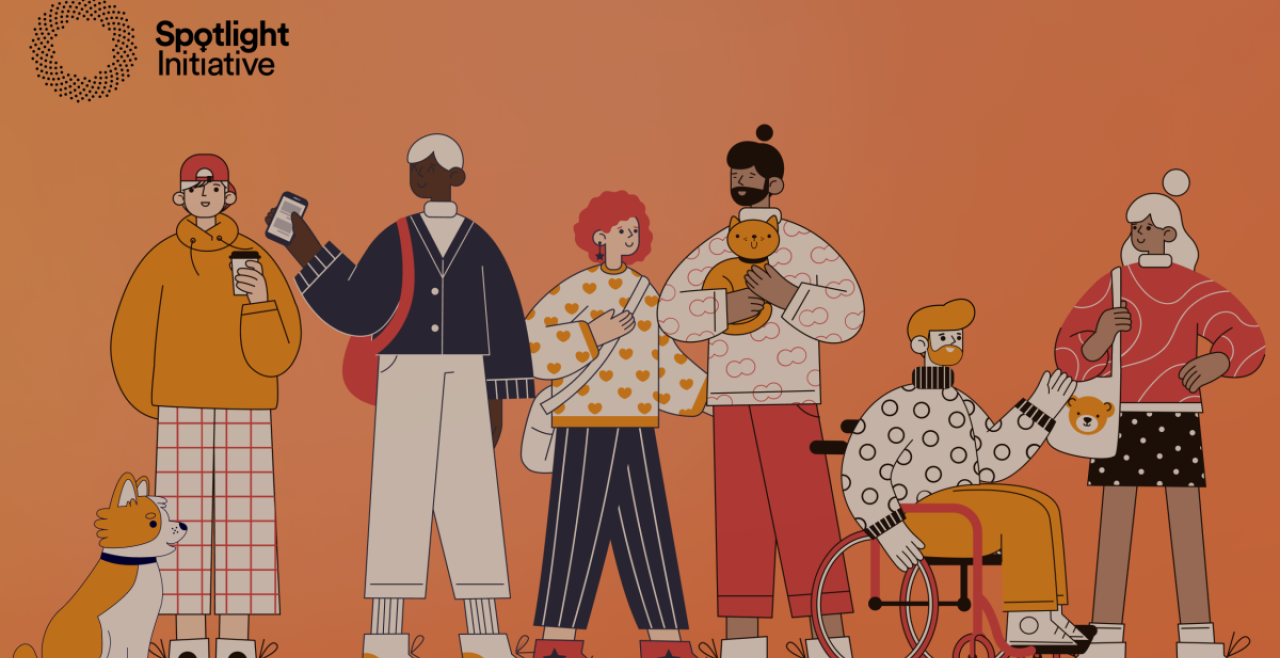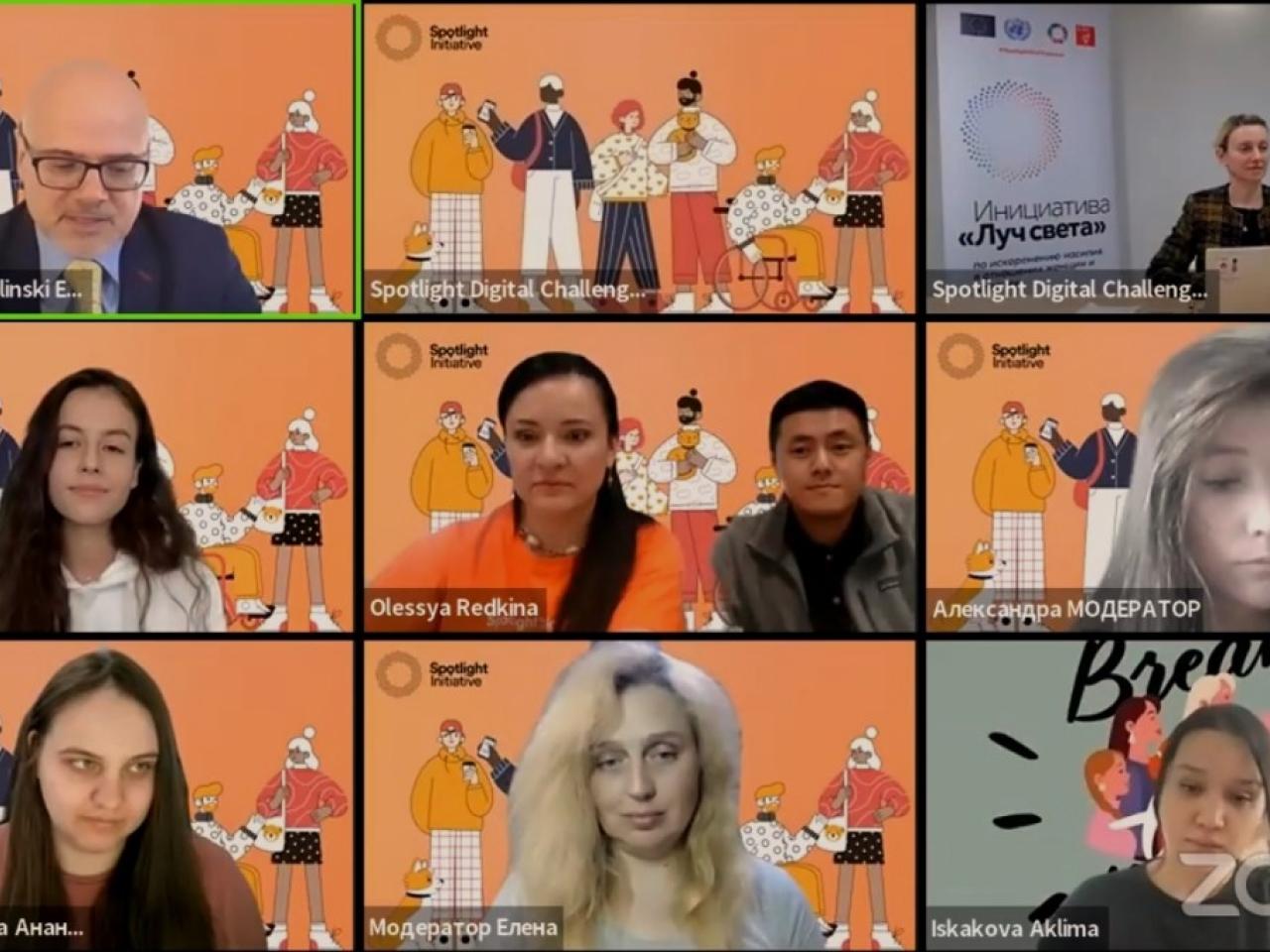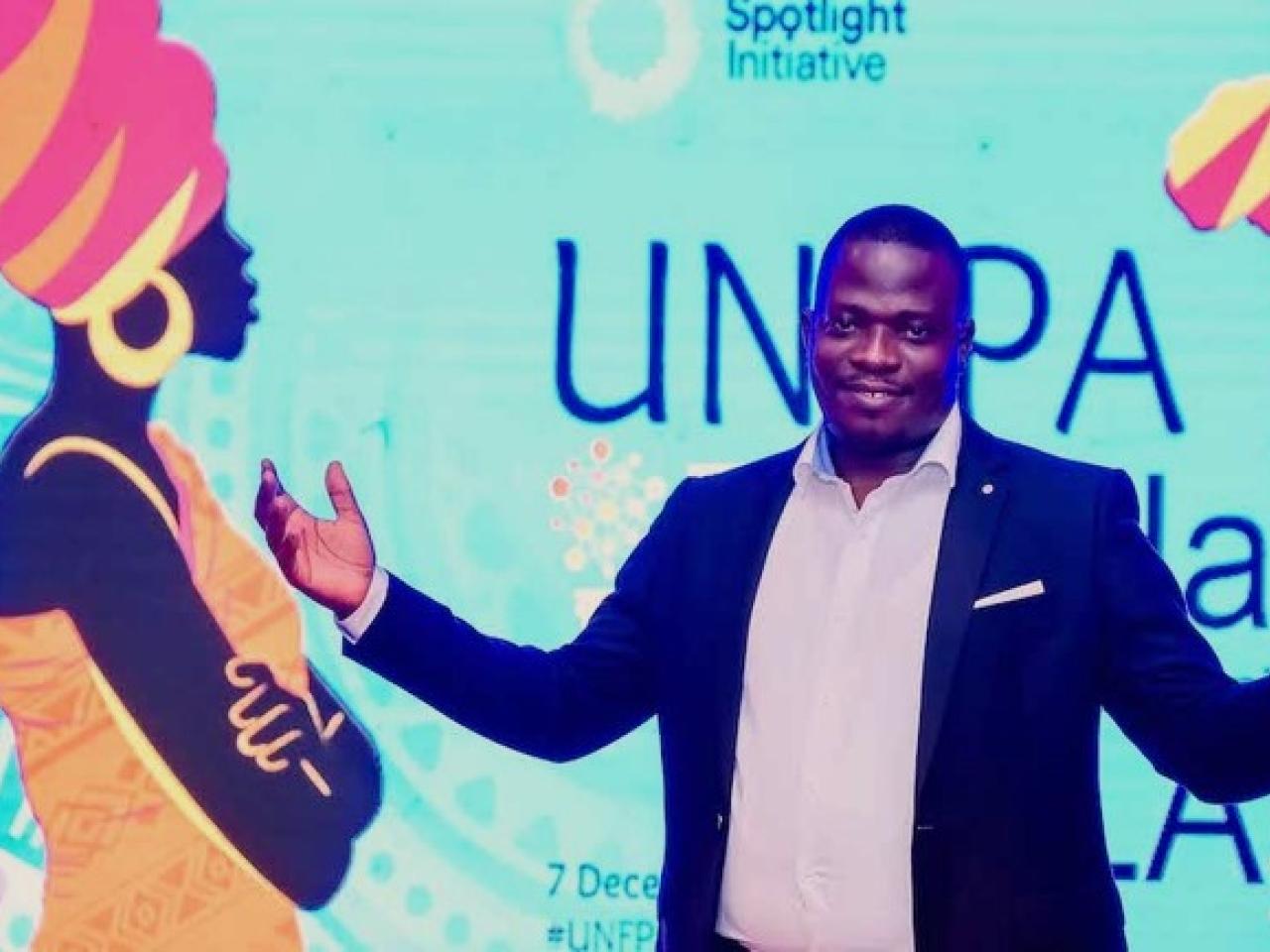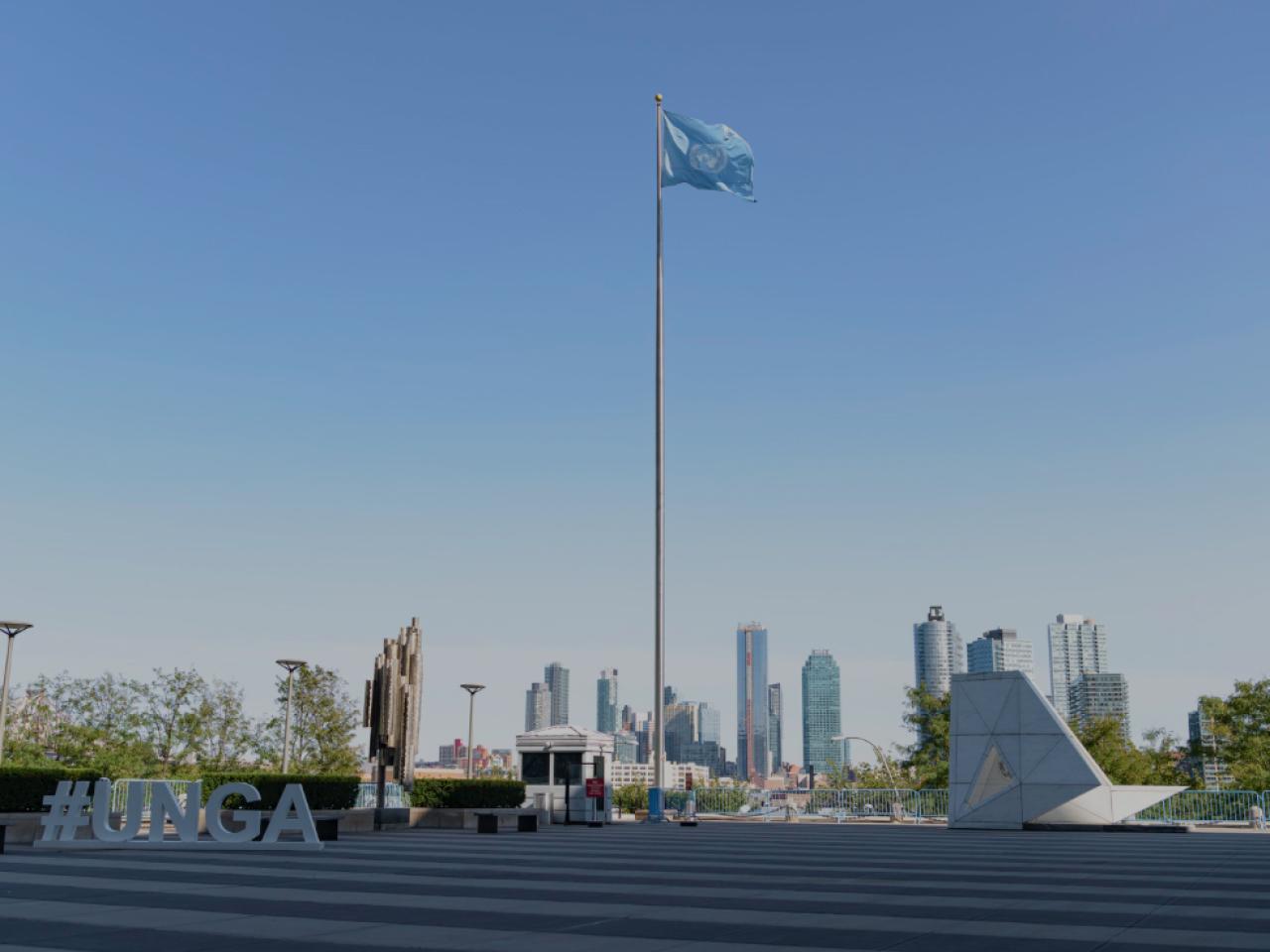In Central Asia, digital educational bootcamp battles gender inequality online

Kyrgyzstan/Kazakhstan/Tajikistan/Turkmenistan/Uzbekistan - On 26-27 March, an educational bootcamp was held for the participants of the Spotlight Digital Challenge. Well-known experts in the Central Asian region on issues of combating gender discrimination and violence shared their knowledge and expertise. Young people participating at the Bootcamp learned facts and figures that confirmed the critical importance of gender equality for the sustainable development of communities and countries. They learned about the personal, social and economic costs of violence against women and the existing data gaps on gender-based violence.
Participants were immersed in the issue from the first day of the Educational Bootcamp. When opening the event, UNDP Deputy Resident Representative Vitalie Vremis noted that although the achievement of gender equality requires joint action by the state, civil society organizations and business, hopes for changing the established ideas about the role of women and men are primarily associated with youth's contribution and with civic engagement. He said, “It is the youth with their desire for progress, for everything new and technological, who are capable of debunking stereotypes that belittle the role and position of half of humanity in private and public life.”
“Hackathons are not only an opportunity to improve your skills and find like-minded people. It is the duty of every citizen to share their ideas to help others.” - Regional Ambassador of Technovation Girls Turkmenistan, Maral Khudaibergenova
Maral Khudaibergenova, Regional Ambassador of Technovation Girls Turkmenistan, shared her activist position with the participants: “Hackathons are not only an opportunity to improve your skills and find like-minded people. It is the duty of every citizen, on behalf of their community, to share their experience or their ideas to help others.”
In her address, Anna Ryl, chairwoman of the private foundation "Korgau-Astana", focused on the daily efforts of the foundation's employees to educate, protect and support those in need of help. She noted a positive trend – when faced with a request for help on social networks, people started to respond and to redirect the request. But, for the most part, it was difficult for the uninitiated to understand and to be sensitized to the stories that led survivors of violence to the brink so that all they could do was to ask for help on the Internet.
During the bootcamp, the participants also discussed examples of how to ensure maximum focus on end-users, to avoid ready-made assumptions and to find non-obvious solutions. Gulzira's Path is the daily experience of a woman living in a volatile neighbourhood with law enforcement stationed in her home, who needs to take her daughter to school through streets full of gunfire. To understand what kind of help and support this woman needs, one needs to follow her entire path, step by step, in other words to be in “in her shoes” and understand what risks she is exposed to.
“Any service aimed at helping the victim of violence should contribute to staying safe, recovering from past violence, restoring violated rights and expanding life opportunities. At the same time, it is necessary to work not only with the victims themselves, but also with the perpetrators of violence, with the surrounding community,” Gulsara Aliyeva, Professor of the Kyrgyz-Russian Slavic University, concluded.
"If you're presenting a project that aims to help women, make sure you really hear the women." - Co-founder and head of Gender Equality Management, Marina Mentusova
Irina Matvienko spoke about the educational role and development of Ne Molchi.uz in Uzbekistan and other projects in the fight against gender-based violence. She weighed the consequences of violence against women and girls against personal, social and economic costs in an accessible way, and established a link between economic and personal costs.
Speaking about a link between the economic and personal costs of gender-based violence and their impact on a woman, Irina emphasized that, “… she is not able to invest much time and effort in education. She cannot work on her qualifications and professional growth, as those who do not face such situations (violence) do. As a result, it is more difficult for her to find a job.” Thus, violence breeds poverty not only at the individual level, but also in society as a whole.
The Bootcamp also drew attention to the linkages between gender equality and the economic empowerment of women. Marina Mentusova, co-founder and head of Gender Equality Management, spoke about gender inequality from a business perspective as a lost opportunity. She also provided excellent examples of gender inequality at the intersection of science and technology and of successful femtech startups that primarily aimed at solving a social problem, not just generating benefits. According to Marina: “There is an important principle: nothing for us without us. If you're presenting a project that aims to help women, please make sure you really hear the women."
The event was also devoted to the topic of new forms of violence emerging as a result of the development of digital technologies and the possibilities of information technologies in combatting them. Colleagues from UNDP Kosovo Vesa Rezniqi Pallaska and Luanda Domi talked about the experience of European countries in countering online and ICT-mediated violence.
On the second day, the participants immersed themselves in the problem of collecting data on domestic violence. Alexandra Graf and Svetlana Zhuchkova, creators of the Algorithm Tsveta (Algorithm of Light) project, spoke about the possibilities of artificial intelligence in filling the data gaps on domestic violence.
“Any service aimed at helping the victim of violence should contribute to staying safe, recovering from past violence, restoring violated rights and expanding life opportunities - Professor of the Kyrgyz-Russian Slavic University, Gulsara Aliyeva
Using their project as an example, they explained to participants how they used the power of automated text analysis to train an algorithm that could identify cases of domestic violence in the general stream of sentencing on facts relating to violence. They also talked about their experience in hackathons, since their project is the result of another project, “Close Face to Close Person”, which won the “Projector 2021” hackathon and was supported by Teplitsa Sotsialnykh Technologii (Greenhouse of Social Technologies) and Novaya Gazeta.
In the second session of the second day of the Educational Bootcamp, the participants met with young innovators from Armenia, Kyrgyzstan, Russia and Uzbekistan who had already taken part in hackathons and were able, by gathering a team of like-minded people, to develop tech-based solutions to help others. In addition to the Algorithm of Light, the projects Burulai, ClickHelp Bot, Safe YOU platform and Call Umida were presented.
The day ended with presentations by experts in hackathons. As experienced trainers, they prepared the participants for working with mentors and experts and gave practical advice on working with experts and preparing presentations.
The Spotlight Digital Challenge event is organized by the Spotlight Initiative regional programme for Central Asia and Afghanistan. It will culminate in the IT vs Violence online marathon competition, which will take place between 1-3 April 2022. It will bring together young people from Central Asia countries who will think through and present their innovative solutions using digital technologies in the fight involving violence against women and girls.
More information about the event can be found on the Spotlight Digital Challenge website: https://spotlightdigital.org.




